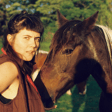
The Felt Sense of Success with Laura Jean
I tell a story about the ironic demise of my keepcup, and the difference between light green and deep green choices, before a pot-of-tea-convo with Laura Jean. Laura is a renegade business coach, dietician and permaculturalist who will help you see VALUES in a whole new light, and how to use them to illuminate the life/business/world you really want. Prepare to cry tears of recognition and possibility.
🐝 Building trust in yourself for changes that take courage
🐝 Eating disorder shares and healing strategies
🐝 The very worst thing that can possibly happen
🐝 Body check for making decisions
🐝 Do we change, or choose?
🐝 Laura’s values
🐝 Why we recreate the same old shit even when living “alternatively”
🐝 Figuring out your Bare Ass Minimum
🐝 The felt sense of success
🐝 Money as a tool to enact your values
🐝 Three steps towards a regenerative business
🐝 Commerce vs. capitalism
🐝 Activities for clarifying your values
🧙♀️ LINKY POOS 🧙♀️
Gundaroo Growers
🙏 Yellow-tailed black cockatoo sound credit 🙏
🧡🧡🧡 Support Reskillience on Patreon 🧡🧡🧡



















